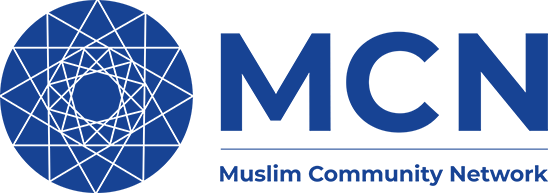Resolution 1257
THE LETTER WAS SENT TO COUNCIL MEMBERS ON MARCH 4, 2021, AND IS NOW CLOSED TO SIGNATURES FOR THAT PURPOSE. HOWEVER, WE STILL WELCOME ADDITIONAL SIGNATURES FOR FUTURE USES OF THE LETTER — THANKS FOR YOUR SUPPORT.
Please feel free to contact Aniqa Nawabi (Executive Director of the Muslim Community Network) at aniqa.nawabi@mcnny.org, or Dr. Henry Goldschmidt (Director of Programs at the Interfaith Center of New York) at henry@interfaithcenter.org, with any questions about this initiative.
March 4, 2021
Re: Request to Cosponsor City Council Resolution Number 1257
Dear New York City Council Members,
We are writing on behalf of a broad coalition of faith-based and secular community organizations, civic institutions, educators, and religious leaders. Together, we urge you to cosponsor City Council Resolution Number 1257, which calls on the New York City Department of Education to provide age-appropriate religious diversity curricula for all students, and to offer professional development for teachers in this area. This resolution in support of religious literacy and mutual understanding will help to create a more just and inclusive city for all New Yorkers. (For the full text of the resolution, see http://bit.ly/nycitycouncilres1257.)
The human cost of religious illiteracy and misunderstanding is seen, all too clearly, in the disturbing rise of hate crimes against religious minorities in recent years. According to the most recent data available from the New York City Police Department and the NYC Office for the Prevention of Hate Crimes, nearly 220 hate crimes against New Yorkers were reported in the past year. Anti-religious incidents top the list of these crimes, 41% of which were motivated by anti-Semitism. Nationally, the FBI’s Uniform Crime Reporting Program has found an alarming trend of increasing hate crimes against Jews, Sikhs, and Muslims since 2015.
Bias-based incidents in our public schools have been severely underreported, as was shown in a 2019 audit conducted by the New York State Comptroller’s office. We know, however, that students from minority faith communities too often face bullying and harassment at school. A 2014 survey by the Sikh Coalition found, for example, that 62% of turban-wearing Sikh students in Queens had experienced bias-based bullying, while 42% had been hit or involuntarily touched because of their turbans. And in a 2019 nationwide survey conducted by the Cyberbullying Research Center, 34% of American Muslims aged 12-17 reported being bullied at school because of their religion in the previous 30 days, along with 25% of Jews, 23% of Hindus, 16% of Catholics, and 14% of non-denominational Protestants.
Incidents like these do not happen in a vacuum. They are shaped by our social and political climate, which has unfortunately fostered religious bigotry in recent years. K-12 education about religious diversity would help to change this climate, by dispelling the stereotypes and misunderstandings that allow bigotry to take hold.
Bigotry, bullying, and hate crimes are pressing problems that the Department of Education must address, but the academic study of religion will also contribute to the DOE’s fundamental educational goals. In order to be truly educated in American history, global studies, literature, or the arts, our students need a rich understanding of religious diversity. In order to participate in American civic life, they need an empathic understanding of their neighbors’ religious lives. Effective teaching about religious diversity is thus essential to the health of our multicultural democracy.
Contrary to a widespread misunderstanding of the U.S. Constitution, the academic study of religion in public schools is entirely consistent with the Establishment Clause of the First Amendment. Indeed, in the landmark 1963 Supreme Court decision that banned devotional Bible reading in public schools, Justice Tom Clark wrote for the court:
“[I]t might well be said that one’s education is not complete without a study of comparative religion or the history of religion and its relationship to the advancement of civilization. . . . Nothing we have said here indicates that such study . . . when presented objectively as part of a secular program of education, may not be effected consistently with the First Amendment.”
In the decades since this decision, clear guidelines have been developed by a number of national organizations (including the First Amendment Center, the American Academy of Religion, the National Council for the Social Studies, and others) to help K-12 teachers teach about religion within a secular, academic curriculum. Here in New York, a number of faith-based and secular organizations (including the Interfaith Center of New York, the Tanenbaum Center for Interreligious Understanding, the Sikh Coalition, the Muslim Community Network, and others) offer constitutionally sound religious diversity education programs for teachers and students. The DOE will have no shortage of willing partners in its effort to create and implement the curricula proposed in Resolution 1257.
The Department of Education’s work in this area will no doubt serve as a model for cities and states throughout the country – thus helping to create a more just and inclusive society for all Americans. We urge you to support this important work, by cosponsoring City Council Resolution Number 1257. We appreciate your consideration of this request. Please feel free to contact Aniqa Nawabi (Executive Director of the Muslim Community Network) at aniqa.nawabi@mcnny.org, or Dr. Henry Goldschmidt (Director of Programs at the Interfaith Center of New York) at henry@interfaithcenter.org, with any questions about this initiative.
Respectfully,
[Footnotes omitted on this form, but included in letter sent to Council Members.]
